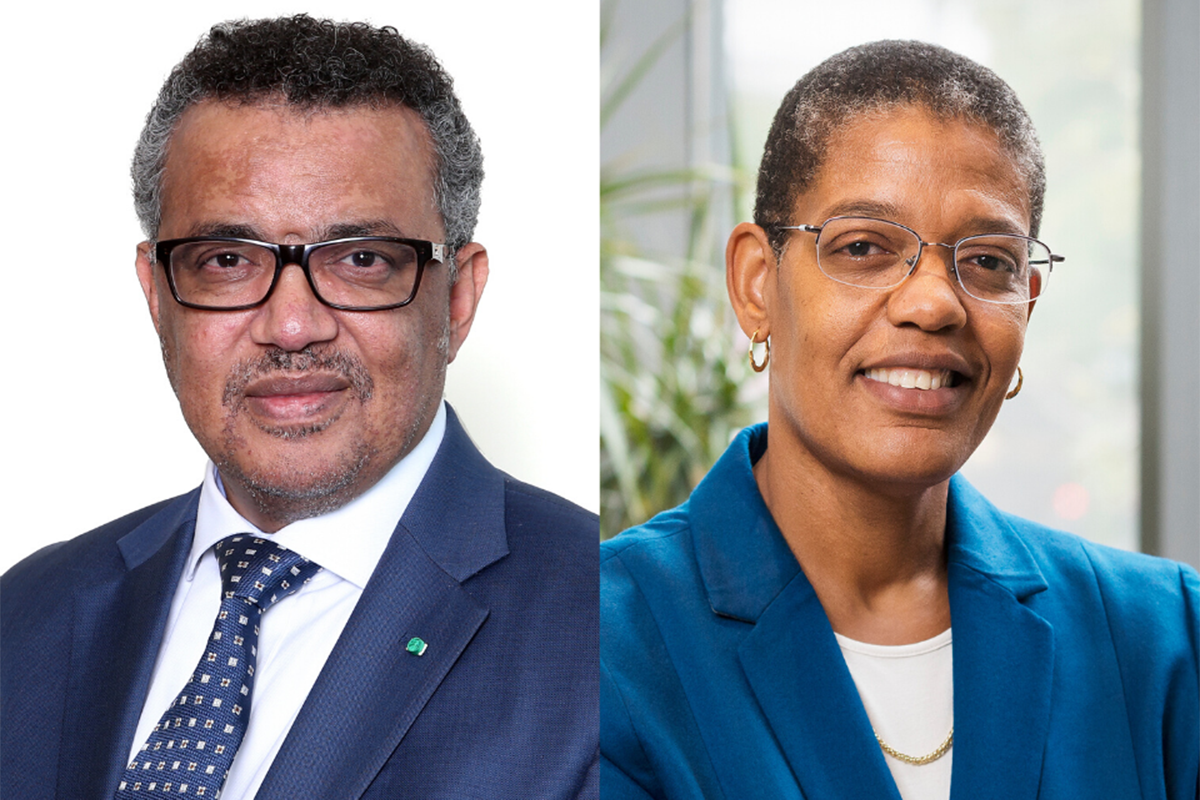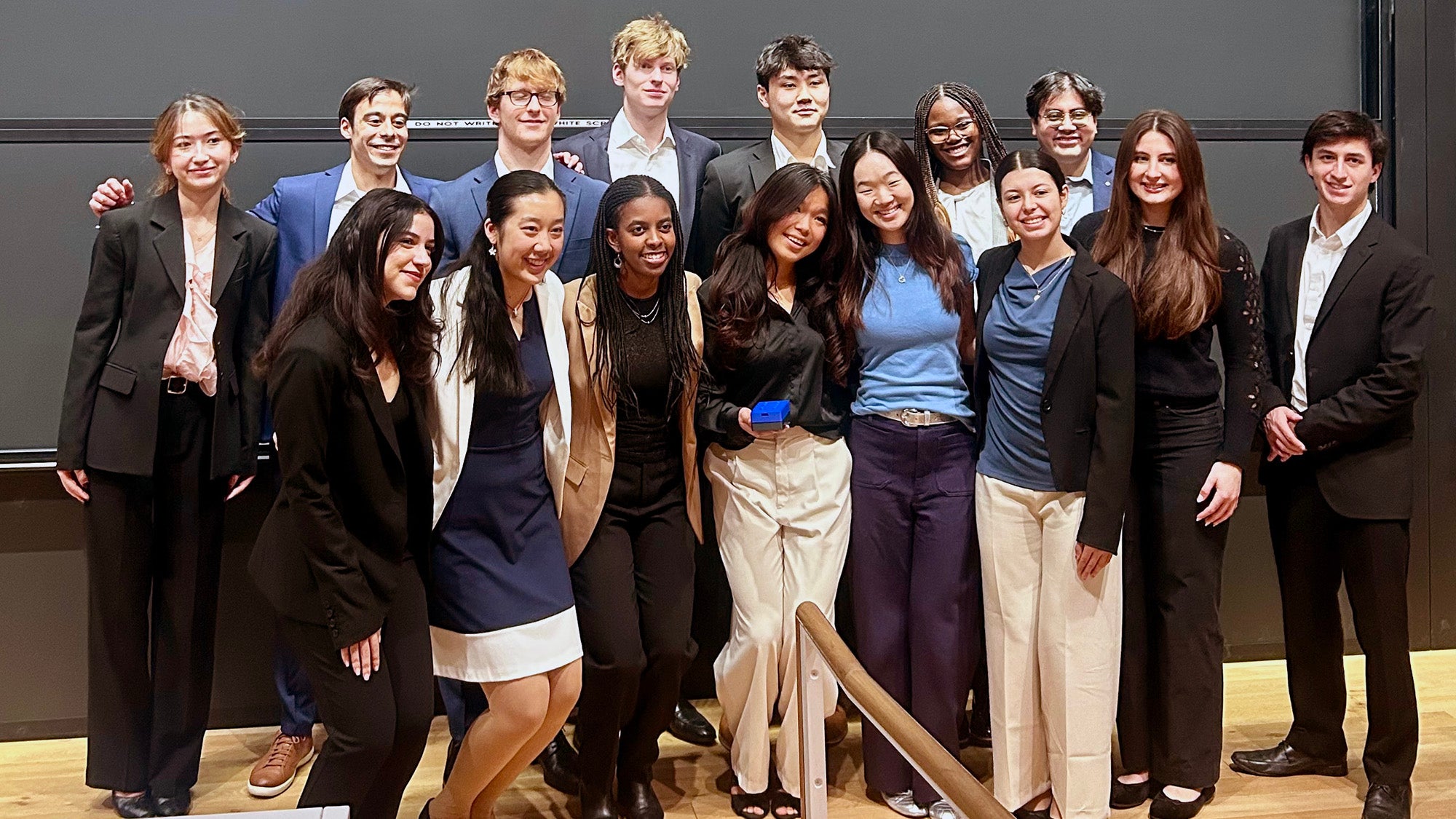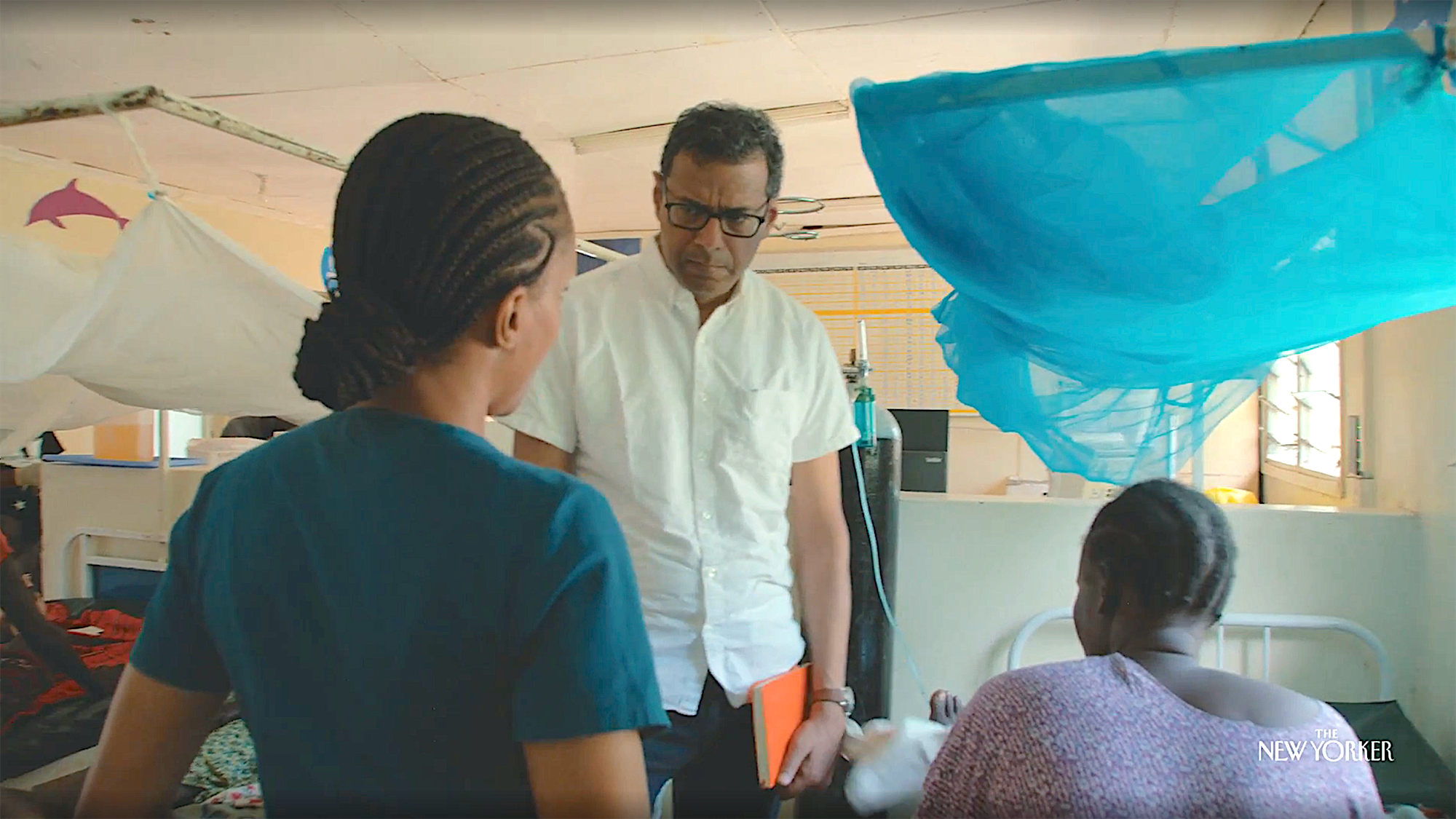A prescription for future pandemics

WHO Director-General Tedros Ghebreyesus, in conversation with Harvard Chan School Dean Michelle Williams, outlined steps to combat the “confusion and incoherence” that has characterized the COVID-19 pandemic response.
March 2, 2022 – The COVID-19 pandemic, which has thrown the world into turmoil for more than two years, has underscored the pressing need for more cooperation and coordination when it comes to fighting global health threats, according to Dr. Tedros Adhanom Ghebreyesus, director-general of the World Health Organization (WHO).
Ghebreyesus, Ethiopia’s former health minister, spoke about the global response to the pandemic at the Robert S. McNamara Lecture, sponsored by Harvard Kennedy School’s (HKS) Institute of Politics and Harvard T.H. Chan School of Public Health, on February 25, 2022. Harvard Chan School Dean Michelle Williams moderated the conversation.
“COVID-19 is a powerful demonstration that a pandemic is so much more than a health crisis,” said Ghebreyesus, after introductions from Williams and HKS Dean Doug Elmendorf. “It illustrates the interconnectedness between health and the economy, security, education, and the intimate links between the health of humans, animals, and our planet. There are many lessons to learn about what has worked and what has not.”
Ghebreyesus listed five lessons from the pandemic:
Science must guide policy, not the other way round. Science has provided valuable insights into how the virus spreads and how to stop it, Ghebreyesus noted. But “in some countries and communities, and on social media, the marginalization and politicization of science has garnered a poor response to the pandemic and cost lives,” he said.
Science can widen inequalities unless it’s paired with a commitment to equity. “As we speak, 83% of the population of Africa has yet to receive a single dose of vaccine,” said Ghebreyesus. “Vaccine nationalism, export bans, and bilateral deals between manufacturers and high-income nations seriously restricted the number of doses COVAX [the international collaboration to provide vaccines around the globe] was able to ship in the first half of last year.” He noted that the supply situation has improved and that WHO and its partners are working toward a target of vaccinating 70% of the population in every country by the middle of 2022.
Countries need more resilient health systems. Ghebreyesus said that even some countries with the most sophisticated medical care were overwhelmed by COVID-19. Investments in public health and a strong primary health care system are key to detecting outbreaks at the earliest possible stage, or preventing them altogether, he noted.
The world needs a new agreement that sets the rules of the game for responding to epidemics and pandemics. “Instead of a coherent and cohesive global response, the pandemic has been marked by a chaotic patchwork of responses,” Ghebreyesus said.
Trust is everything. Ghebreyesus cited a recent Lancet study that found that high levels of trust in government and interpersonal trust were among the most important factors in countries’ preparedness and ability to respond effectively to the pandemic.
WHO has launched several initiatives aimed at tackling some of issues that have plagued the global response to COVID-19, Ghebreyesus said. For example, WHO member states are negotiating a new international agreement aimed at better coordinating the response to future epidemics and pandemics. In addition, WHO is establishing hubs for strengthening pandemic surveillance, for facilitating the sharing of pathogens and clinical samples, and for strengthening the capacity for local production of vaccines and other health products in low- and middle-income countries. WHO also established a scientific advisory group to determine the origins of the coronavirus. “We owe it to those who have died, and their families, to do our best to identify where this coronavirus came from,” Ghebreyesus said.
Williams noted that while more than 10 billion doses of COVID-19 vaccine have been administered globally, only 10%-12% of people in low-income countries have received at least one dose. She asked Ghebreyesus how to rally the world around the vital mission of equitable vaccination.
He said that WHO has made some headway in pushing for richer countries to donate vaccines. But he said that wealthier countries could donate much more. “We have asked the global community and donors to give their fair share,” he said. He added, “This is a shared threat. Unless we vaccinate the whole world, we will all be at risk.”


